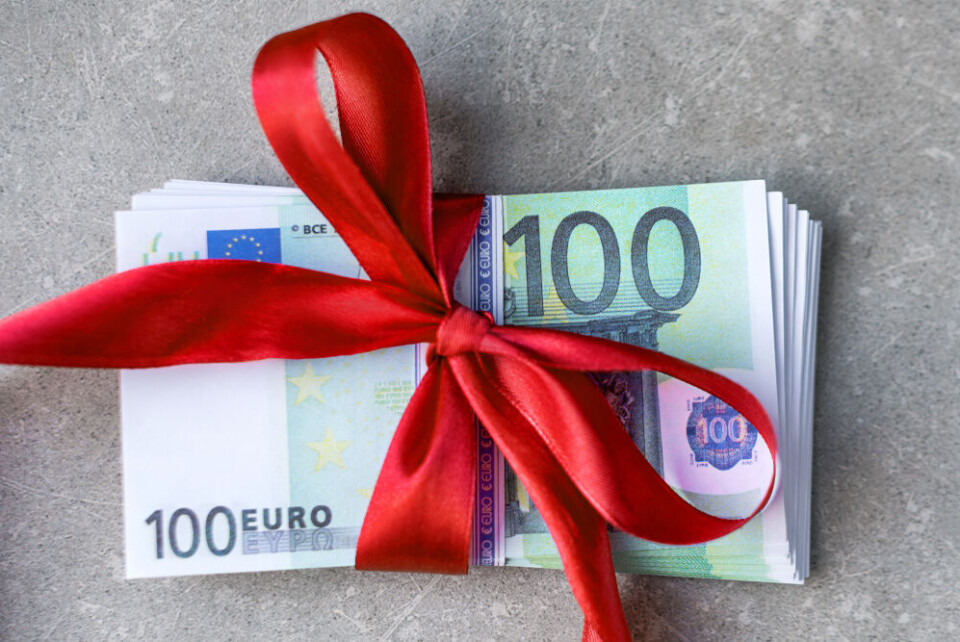-
French banks applying ‘irregular’ charges on clients, fraud office check reveals
The investigation into 100 banking establishments found breaches, failings, and alleged criminal practices
-
Ryanair threatens to reduce flights in France as tax increases back on agenda
‘France is going against the tide’, said Ryanair’s CEO
-
Why employees in France are likely to receive less money in January
Three changes are expected to make a dent in the usual level of net pay
How can I lower the ‘gift’ tax on a present to a relative?
There are certain ways to reduce the tax you need to pay

Reader question: I live in France and plan to give a large money gift to my nephew, who is a student here. Should I pay the gift tax?
Gift tax (droits de donation) may be due on any money or valuables given outside special occasions, or gifts on such occasions that are disproportionately valuable.
This does not apply to money given to a direct-line descendant or ancestor to help them with essentials because they are in need, which is seen differently for tax purposes.
The tax allowance (renewable after 15 years) and rates depend on the nature of the relationship.
For nephews, there is an allowance of €7,967 after which tax is payable at 55%.
It is possible, however, for them to benefit from a higher allowance for dons familiaux de sommes d’argent, if you have no children or grandchildren, you are under 80, and the nephew is an adult.
This latter allowance, which can be combined with the other, is €31,865.
Your nephew should declare the gift and the basic rule is he should also pay any tax, but it is beneficial for the giver to pay and this is not seen as an additional taxable gift.
For example, if you give €10,000, he will pay tax on €2,033 of this at 55% and will end up with €8,881.85. If you give €9,000 and pay the tax (55% x €1,033 = €568.15), it will cost you €9,568.18 and he will keep the €9,000.
Related articles:
Can we give our French home to my husband's son?
How do I leave money to charity in France?
























